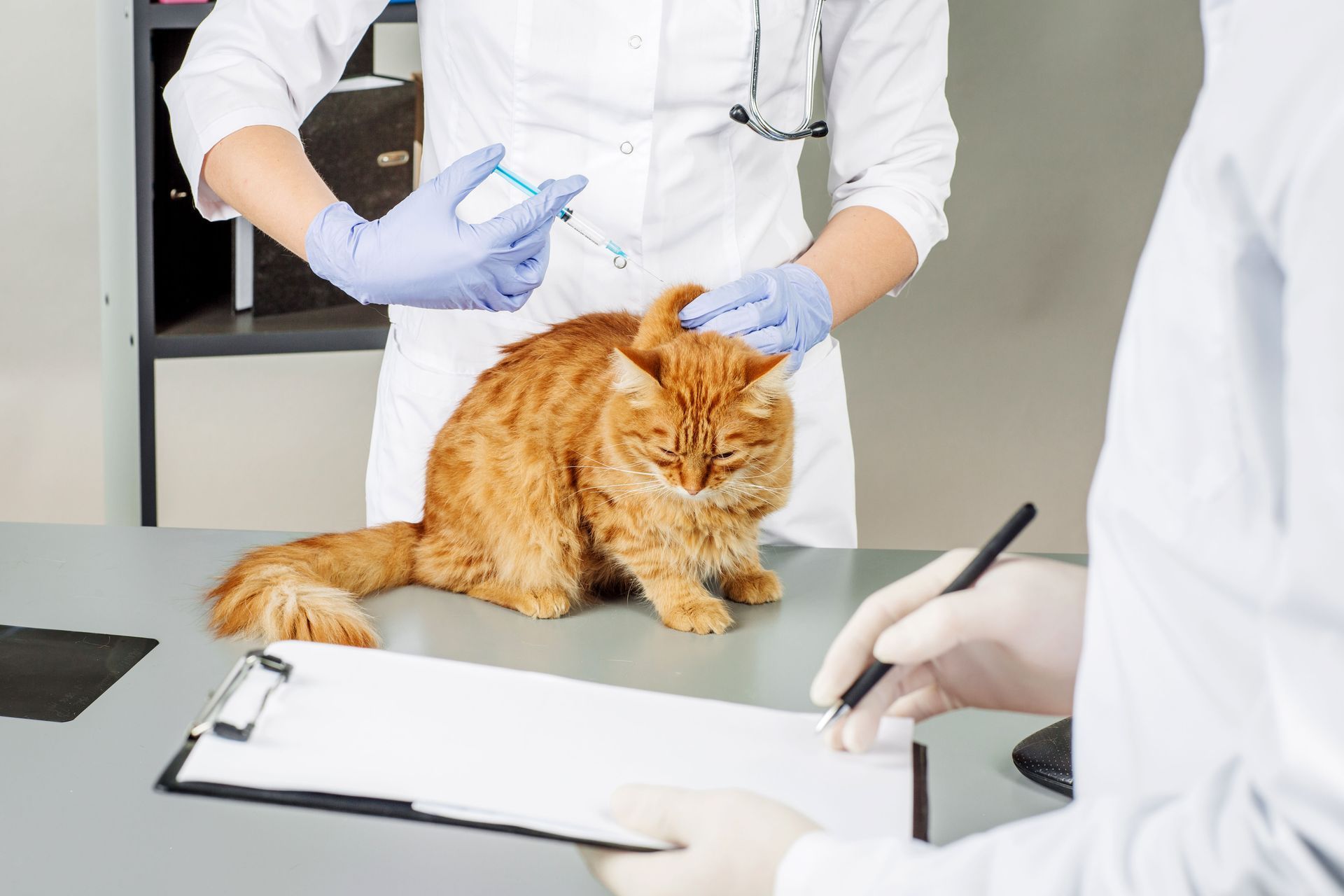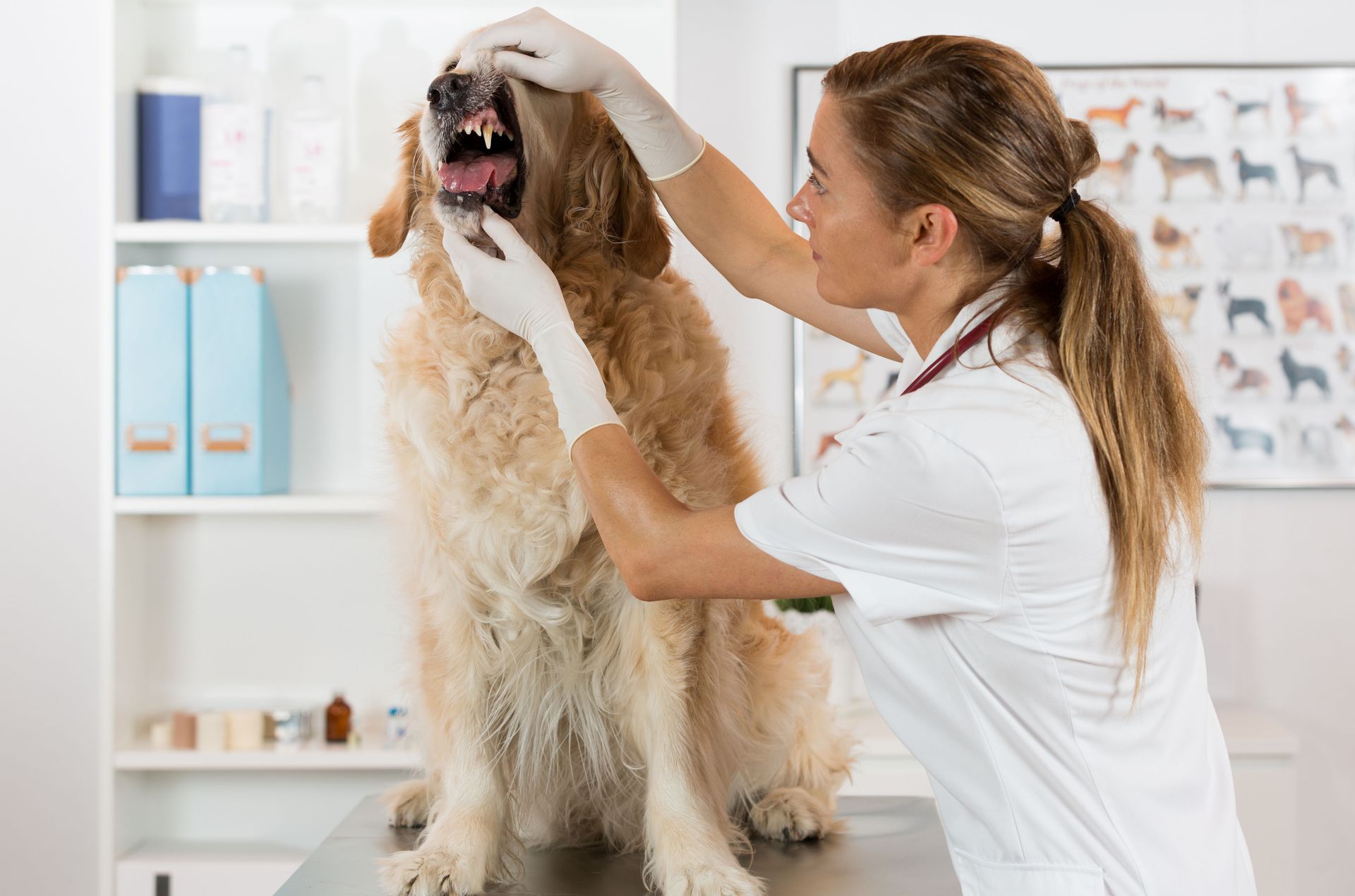September 15, 2025
Vaccinations play a crucial role in maintaining the health and longevity of your feline friends. As a pet owner, understanding cat vaccinations is essential for ensuring the well-being of your cat. This article delves into key aspects of cat vaccinations to provide you with a comprehensive guide. By being informed, you can make better decisions about your cat’s healthcare and ensure they lead a healthy, active life.
Protect Your Cat With Vaccinations
Vaccinations protect cats from various diseases, keeping them and the surrounding environment safe. They serve as a shield against common and potentially fatal illnesses that cats can contract through contact with other animals and their environments. By vaccinating your cat, you greatly enhance their quality of life by reducing the risk of disease and improving their long-term health. Additionally, vaccinated cats often require fewer emergency vet visits, which can reduce stress and medical expenses for both the pet and owner.
When cats are vaccinated, it not only benefits their personal health but also contributes to the welfare of the feline community. Vaccinated cats are less likely to harbor and spread diseases, contributing to a healthier environment for both pets and humans. This preventative measure extends beyond your home and can protect a neighborhood of cats from potential outbreaks. Community-wide cat vaccination efforts have been shown to significantly reduce the incidence of contagious diseases, making cat vaccination a socially responsible practice for pet owners.
A cat's health is significantly bolstered by cat vaccination, as it helps prevent immune system-related complications. Vaccines help the cat’s body recognize and combat pathogens that it would otherwise be vulnerable to. Additionally, keeping your cat vaccinated helps minimize the spread of zoonotic diseases, which are transmissible between animals and humans, thus safeguarding public health. Ensuring your cat is protected through vaccines also reduces the likelihood of long-term health complications, supporting a more comfortable and active life as they age.
Differentiate Core and Optional Vaccines
Core vaccines are essential for all cats, while non-core vaccines depend on geographical location, lifestyle, and exposure risk. Core vaccines typically include those for feline distemper, feline calicivirus, rhinotracheitis, and rabies, as these diseases possess a universal risk of exposure. In contrast, non-core vaccines, such as those against feline leukemia virus, are advised based on specific situations and risk assessments. Understanding which vaccines fall into each category allows owners to prioritize the most critical protections without overloading the cat’s immune system.
Understanding the difference between essential and optional cat vaccinations can help cat owners tailor a vaccine schedule that best suits their pet's individual needs. Factors such as whether your cat is indoor or allowed outside, travels with you frequently, or lives in an area prone to certain diseases can influence this decision. Consulting a veterinarian is crucial as they can provide a professional risk assessment specific to your cat's circumstance. This personalized guidance ensures that your cat receives appropriate protection without unnecessary interventions.
While essential vaccines are recommended for every cat, non-core vaccines are often guided by more nuanced considerations. Geographic location, for instance, can greatly influence the likelihood of exposure to specific pathogens, making certain vaccines more necessary in some areas than others. Lifestyle factors, such as boarding, grooming habits, and interaction with other animals, also play a critical role in determining cat vaccination needs. Taking these elements into account helps preventable illnesses while maintaining a balanced approach to feline healthcare.
Establish a Vaccination Timeline
Starting vaccinations at the right age ensures maximum efficacy. From our experience, kittens usually begin their cat vaccination schedule at six to eight weeks, laying the foundation for a robust immune system early in life. Initial vaccines are followed by boosters, typically spaced out every three to four weeks until the kitten is about 16 weeks old. Following this schedule closely ensures that the kitten develops strong immunity at a critical stage of growth, protecting them during their most vulnerable period.
The establishment of a cat vaccination timeline is essential in maintaining the effectiveness of earlier vaccinations. Vaccines rely on a series of doses to build and maintain a cat's immune defenses, especially during those vulnerable early months. Discussing individual vaccination plans with a veterinarian allows for adjustments based on each cat's health status and risk factors, ensuring optimal protection. A clear schedule also helps pet owners stay organized and prevents missed doses that could compromise immunity.
A properly scheduled vaccination program is crucial, as it directly impacts the longevity and disease resistance of a cat throughout their life. Booster vaccinations are essential for restoring vaccine efficacy and should be scheduled according to veterinary advice. Adult cats usually require annual or triennial booster shots, depending on the vaccine and individual needs. Consistency with boosters ensures lifelong protection, allowing your cat to remain healthy and active well into their senior years.
Monitor Common Reactions and Risks
While generally safe, cat vaccinations can sometimes cause mild side effects. Common reactions may include slight fever, lethargy, reduced appetite, or localized swelling at the injection site, typically subsiding within a few days. Though less common, allergic reactions can occur, and it's essential for pet owners to monitor their cats closely after a vaccine appointment. Being prepared for these reactions can reduce anxiety for both the cat and the owner, allowing for timely care if needed.
Understanding potential risks helps cat owners make informed decisions about cat vaccinations, balancing the benefits against the chances of mild adverse reactions. It's advisable to observe your cat for any unusual behavior post-vaccination and report anything concerning to your vet. Gaining knowledge about possible reactions prepares you to take prompt action should complications arise, increasing chances for a quick resolution. Pet owners who understand what to expect are more confident in supporting their cat through the vaccination process.
According to AVMA Publications, over 25% of cat owners were identified as vaccine-hesitant. This highlights the importance of discussing any concerns or questions with a veterinary professional. By engaging in open dialogue with a vet, pet owners can better understand the safety and necessity of cat vaccinations, fostering trust and confidence in the process. Transparency and education can help alleviate fears and encourage responsible pet care practices.
Maintain Vaccine Effectiveness With Boosters
Boosters are crucial to maintaining protection against diseases. Over time, the initial immunity provided by vaccines can diminish, making timely booster shots vital. Following a veterinarian-recommended schedule ensures that your cat remains protected throughout their life against transmissible diseases. Regular booster compliance is an easy yet effective way to safeguard your cat against infections that could otherwise have serious consequences.
Discussing with your vet can help determine the ideal timing for revaccination based on lifestyle and health history. Each cat's vaccination schedule may vary depending on their specific living conditions, health considerations, and any emerging health threats. A custom cat vaccination plan ensures that cats receive the necessary protection when they most need it. This approach also allows pet owners to anticipate future healthcare needs and plan accordingly, minimizing stress and potential health risks.
Maintaining vaccine effectiveness is a continuous process, requiring pet owners to remain vigilant and proactive about their cat's health management. Regular veterinary check-ups provide an opportunity to reassess vaccination needs and adjust timelines accordingly. By staying informed and engaged, you contribute significantly to the sustained well-being of your feline friend. Lifelong attention to vaccination schedules fosters a healthy, happy cat and strengthens the bond between pet and owner.
Understanding the intricacies of cat vaccinations can significantly impact your pet's health. Ensuring your cat follows a proper cat vaccination schedule can help prevent diseases and contribute to their overall well-being. Always consult with a vet to tailor the best cat vaccination plan for your feline friend. By staying proactive and informed, you're giving your cat the best chance for a long, healthy, and vibrant life. Reach out to Benson Animal Hospital to learn more today!




